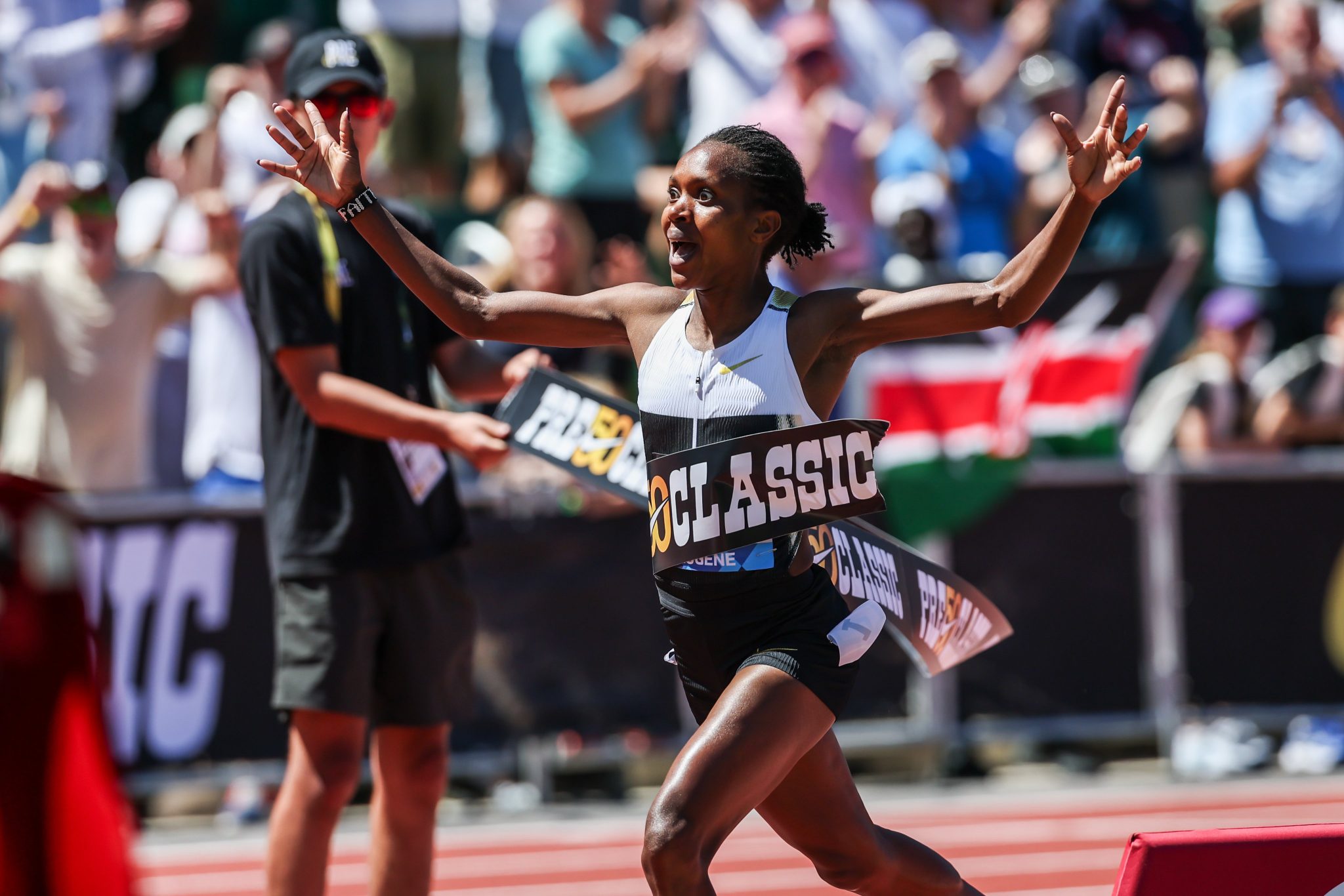An interesting statistic about Faith Kipyegon (thinking on it, you can drop the ‘interesting’; every statistic about Faith Kipyegon is interesting).
But the one that has piqued my interest recently concerns Faith and the 5000 metres. Kipyegon, the best 1500 runner in history, burst into calculations at the 5000 metres when she broke the world record in June 2023, running 14:05.20 and defeating the previous record holder Letesenbet Gidey.
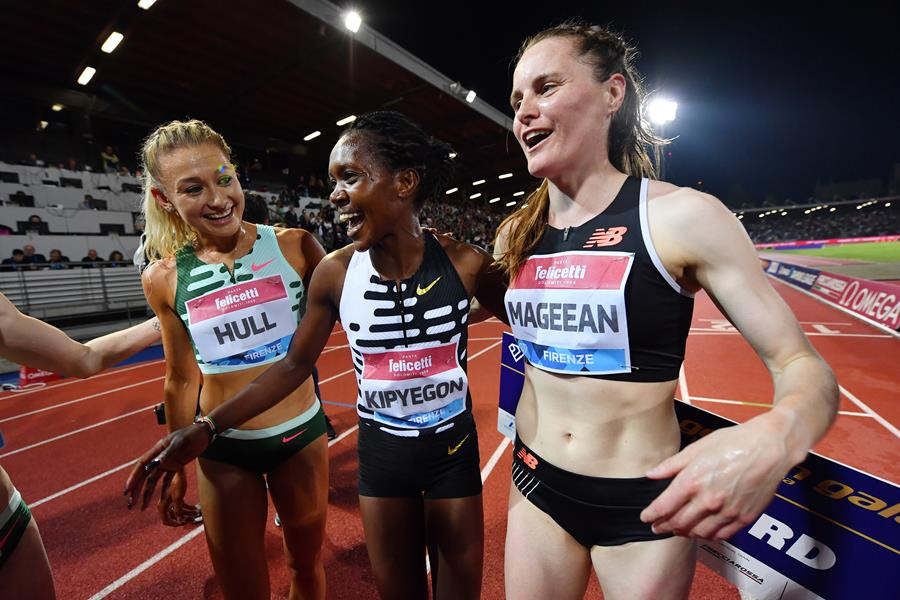
The 5000 world record came in just Kipyegon’s third race at the distance – and first since 2015! – and hard on the heels of her 1500 mark just seven days earlier. Just over a month, this time in Monaco, she added a world record for the mile in Monaco.
Three world records in seven weeks and then Faith Kipyegon crowned a brilliant season with gold medals in the 5000 and 1500 at the world championships in Budapest. She beat Diribe Welteji and Sifan Hassan at the shorter distance, Hassan and Beatrice Chebet at the longer.
Faith Kipyegon’s dominance at 1500 began much before 2023. It began in Rio at the 2016 Olympics, the first of an unprecedented three Olympic golds in a row at the distance, and is still going. Since Rio she has won all but one of the world and Olympic 1500 titles with the sole exception of Doha in 2019 when she was defeated by Hassan.
The 5000 metres? Not so much. Kipyegon has raced sparingly, and well, at the longer distance these past two year – just the Kenyan trials and the Olympics in 2024 and not all before the Tokyo25 worlds where she used her defending champion wildcard. But in those global championships she has been defeated both times by her teammate Beatrice Chebet. In the same time the world record has been improved twice, first by Tsegay and then Chebet who became the first woman under 14 minutes.
That’s hardly anything short of an outstanding record at 5000 metres but judged against Faith Kipyegon’s complete dominance at 1500 and the mile the 5000 is by a clear margin her lesser distance.
Does it put you in mind of anyone else, I wonder? It reminds me of Jakob Ingebrigtsen by some way the world’s fastest and most consistent male 1500 performer in recent years but unable to convert that to championship gold.
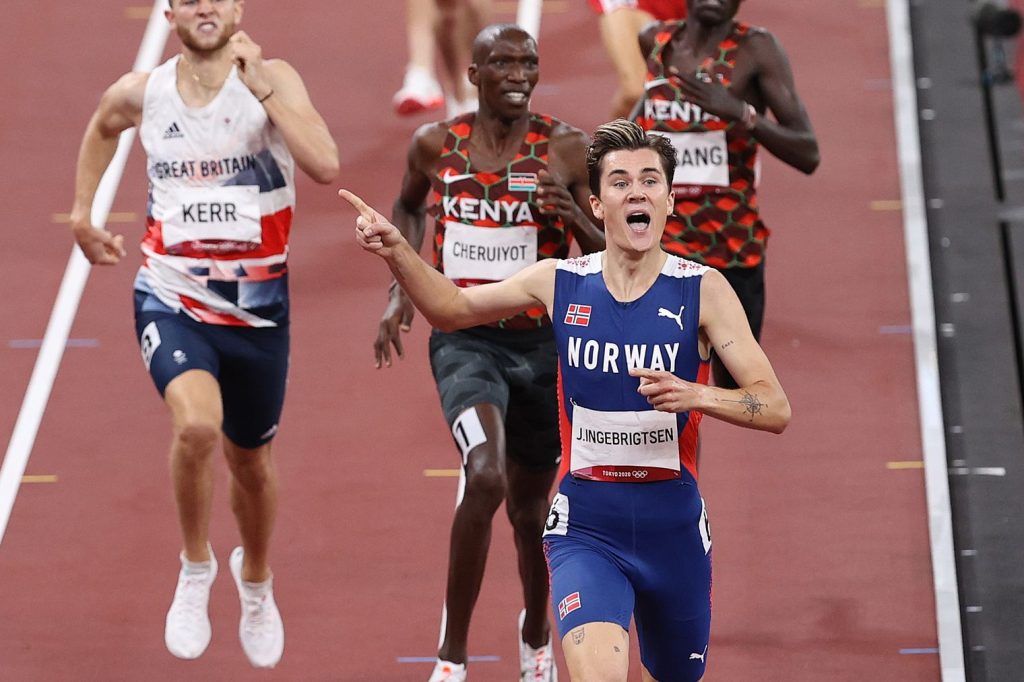
Like Kipyegon, Ingebrigtsen started at the pinnacle with a gold medal at 1500 in the Tokyo20 Olympics, but since then it has been silver both indoors and out in 2022, silver in 2023, fourth in Paris24 and non-finalist in 2025. To be fair, his performances in Tokyo were praiseworthy given injury had restricted him severely in the lead-up. His first race of 2025 was his 1500 heat.
Leave 2025 aside, however, and Ingebrigtsen and Kipyegon are in the same position: supreme at one distance, outstanding – but fallible – at the other. The extenuating circumstances are many – Ingebrigtsen has lost to two excellent rivals in the world championships, Jake Wightman in Eugene and Josh Kerr in Budapest, and set up an Olympic record win for Cole Hocker in the Paris Olympics with Kerr and Yared Nuguse also sneaking past in the final metres to shut him out of the minor medals.
As for Faith at 5000 metres, she has run into one of the best of all-time in Chebet, with the endurance of a 10,000 metres champion (not to mention of a dual world cross-country champion) and possessed of a finishing kick even more potent than Kipyegon. At 5000 metres we are seeing the three fastest women ever – Chebet, Tsegay and Kipyegon – clashing at the peak of their careers, the same scenario as Ron Clarke, Kip Keino and Michel Jazy racing against each other in 1965.
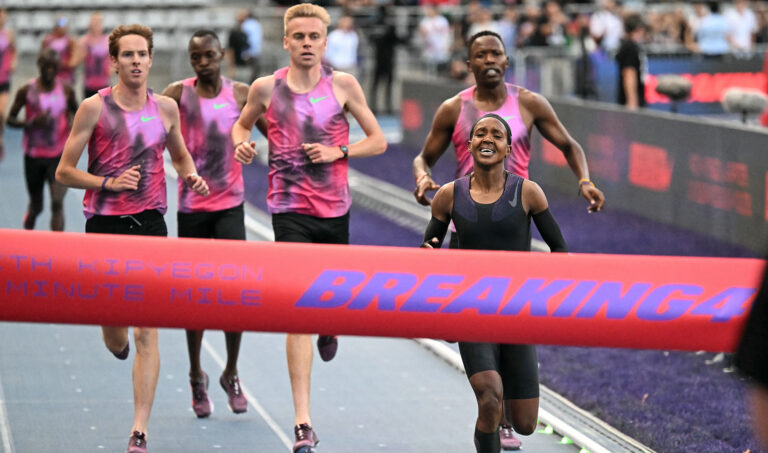
But there’s also something about it reminiscent of The Opposite, one of my favourite Seinfeld episodes. A brief synopsis of the plot is that Jerry advises his friend George Costanza, who is complaining that everything turns out wrong for him: “if every instinct you have is wrong, then the opposite would have to be right.”
Acting on this assumption, George immediately lands a date with a beautiful woman and then a plum job with the New York Yankees baseball team (after berating the owner for his poor management decisions). His life takes a big uptick.
Elaine Benes, on the other hand, suffers through a series of setbacks which see her kicked out of her apartment building and sacked from her publishing job when the firm is unable to clinch a rescue deal with a Japanese company. Bemoaning this disastrous turn of events whereby everything is going wrong for her but right for the usually ill-fated Costanza, she complains: “I’ve become George.”
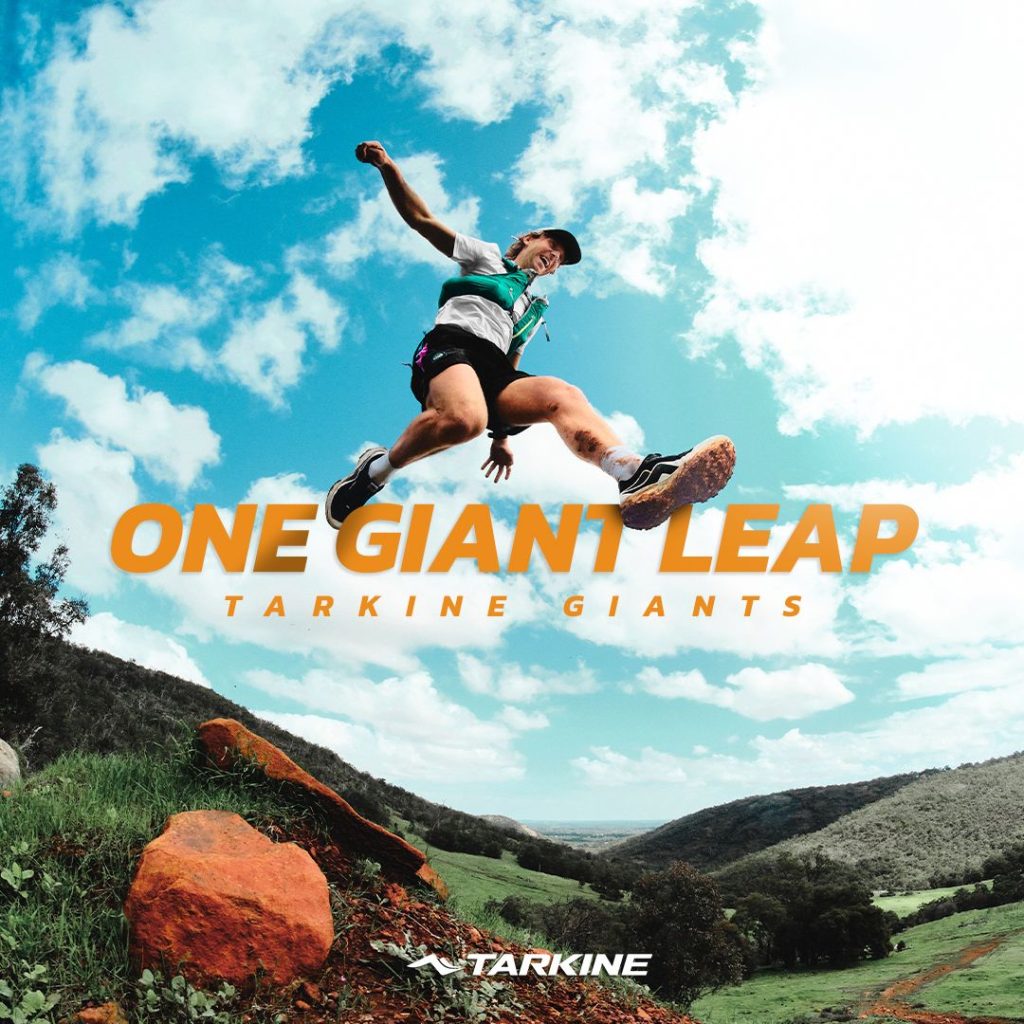
Given Kipyegon is following a similar trajectory to Ingebrigtsen – unbeatable in one event, fallible in the other – the question is, “is Faith becoming Jakob.”
(Of course, the answer from the rest of the middle-distance world is: “Can I just be either of them?”)



